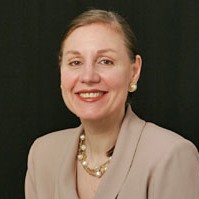Primary tabs

Biography
LABORATORY FOR RATIONAL DECISION MAKING
Valerie Reyna is the Lois and Melvin Tukman Professor of Human Development, Director of the Human Neuroscience Institute, and Co-director of the Center for Behavioral Economics and Decision Research. Her research integrates brain and behavioral approaches to understand and improve judgment, decision making, and memory across the life span. Her recent work has focused on the neuroscience of risky decision making and its implications for health and well-being, especially in adolescents; applications of cognitive models and artificial intelligence to improving understanding of genetics (e.g., in breast cancer); and medical and legal decision making (e.g., about jury awards, medication decisions, and adolescent substance use). She is a developer of fuzzy-trace theory, a model of the relation between mental representations and decision making that has been widely applied in law, medicine, and public health.
Dr. Reyna is a member of the National Academy of Medicine (formerly the Institute of Medicine) and is a Fellow of the Society of Experimental Psychologists, the oldest and most prestigious honorary society in experimental psychology. She is also a Fellow of the American Association for the Advancement of Science, the Divisions of Experimental Psychology, Developmental Psychology, Educational Psychology, and Health Psychology of the American Psychological Association, and the Association for Psychological Science. Dr. Reyna has been a Visiting Professor at the Mayo Clinic, a permanent member of study sections of the National Institutes of Health, and a member of advisory panels for the National Science Foundation, MacArthur Foundation, and the National Academy of Sciences. For example, she is on the Advisory Committee of the National Research Council’s Division of Behavioral and Social Sciences and Education (DBASSE) which oversees 10 boards and standing committees, and serves as the Chief Scientific Liaison and representative to the Federation of Associations in Behavioral and Brain Sciences of the Psychonomic Society.
Taking a leave from academia, Dr. Reyna helped create a new research agency in the U.S. Department of Education, where she oversaw grant policies and programs. Her service has also included leadership positions in organizations dedicated to equal opportunity for minorities and women, and on national executive and advisory boards of centers and grants with similar goals, such as the Arizona Hispanic Center of Excellence, National Center of Excellence in Women’s Health, and Women in Cognitive Science (supported by a National Science Foundation ADVANCE leadership award).
Dr. Reyna is the Editor of Developmental Review and sits on the editorial board of such journals as Psychological Review, Decision and Journal of Experimental Psychology: Learning, Memory, and Cognition, leading journals in decision sciences and in psychology. Dr. Reyna has received many years of research support from private foundations and U.S. government agencies, and currently serves as principal investigator of several grants and awards (e.g., from the National Science Foundation and the National Institutes of Health).